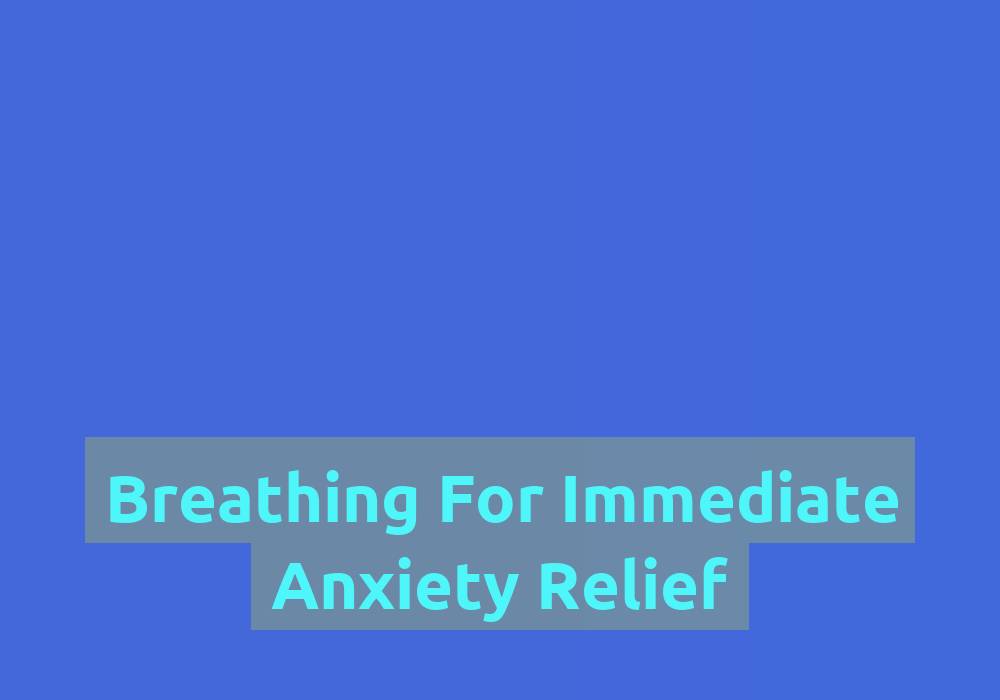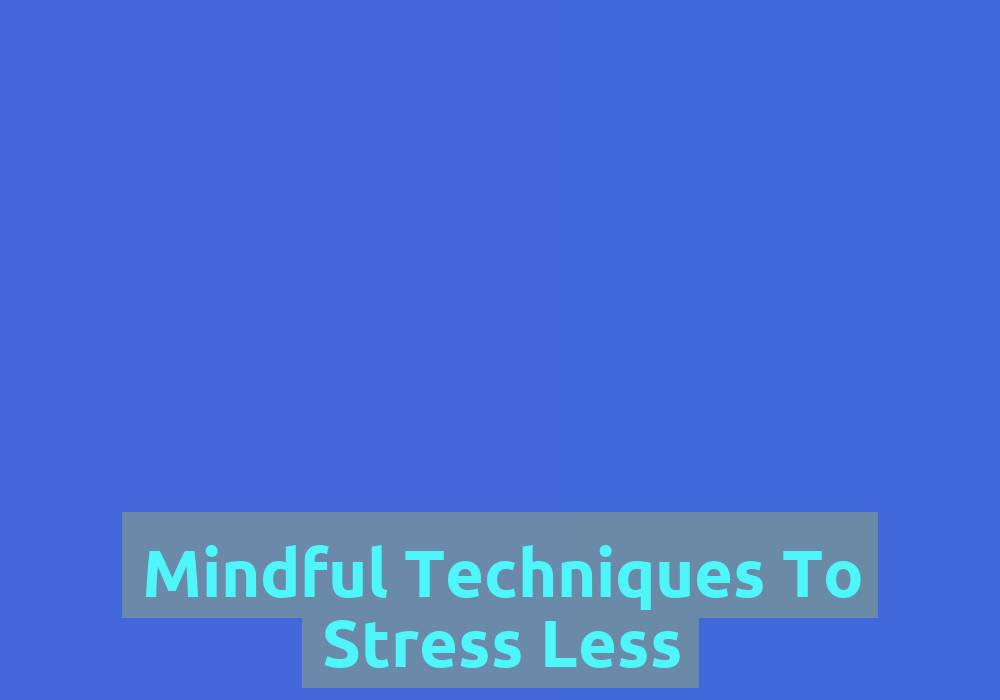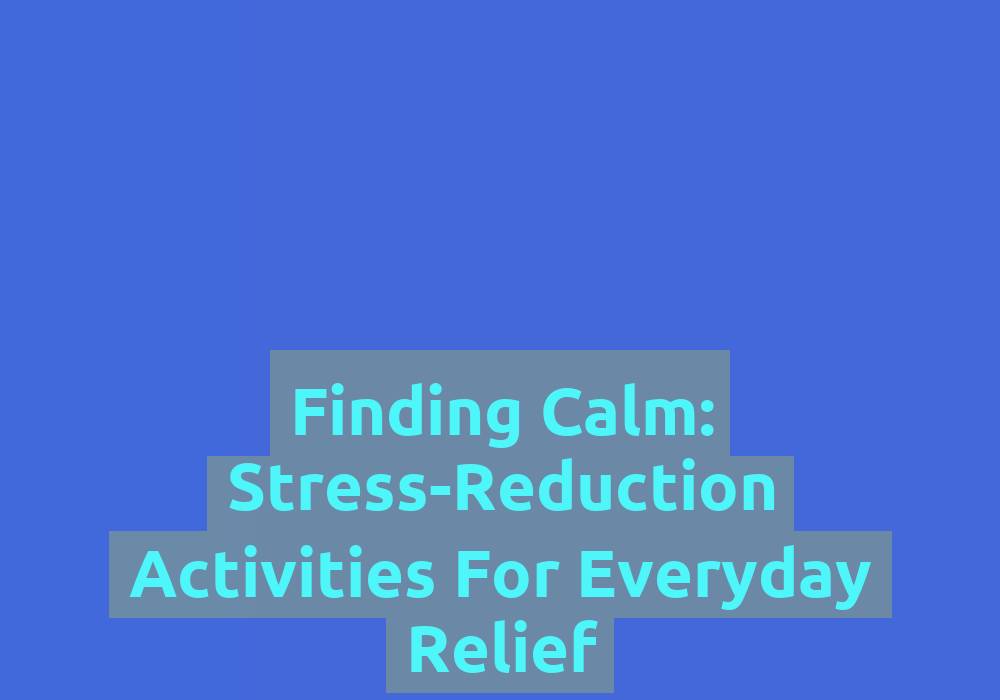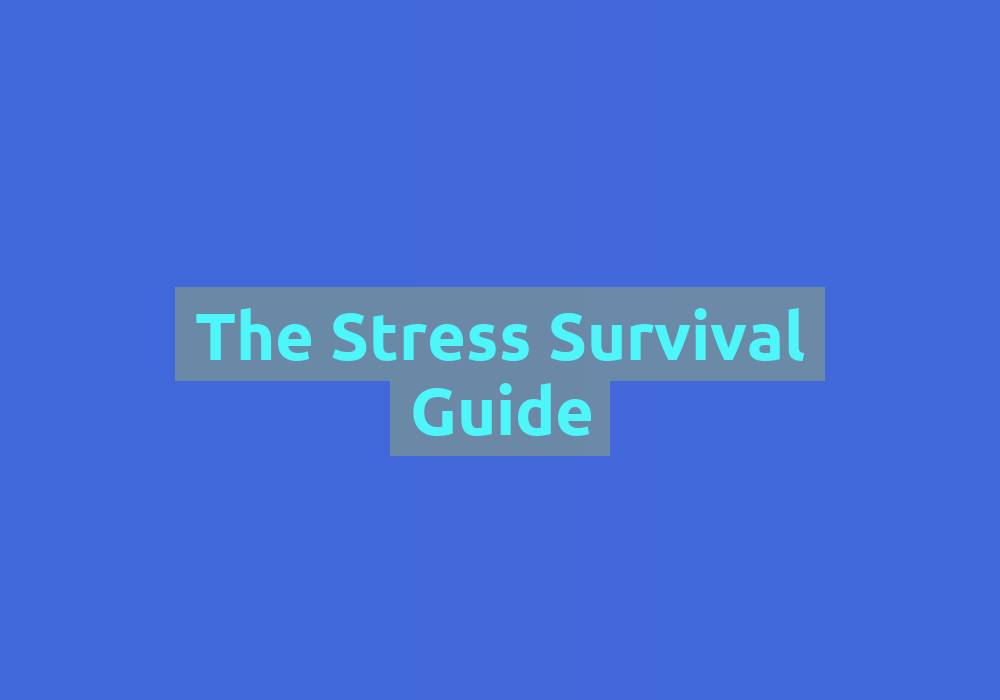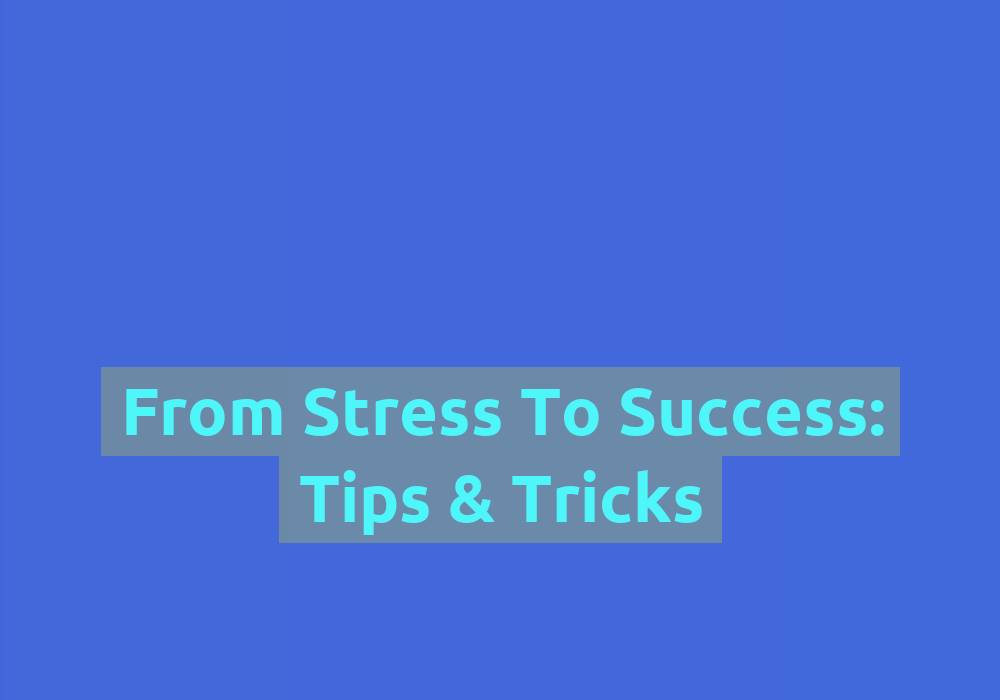Stress and Hearing Problems: A Universal Insight into Their Link
Understanding the Physiological Effects of Stress on Hearing Health
How Stress Hormones Affect the Auditory System

The intricate connection between stress and hearing health stems from the physiological responses our bodies experience. Central to this relationship are stress hormones, with cortisol being a key player. When we encounter high levels of stress, cortisol is released into the bloodstream, triggering a cascade of effects, including changes in blood flow. The inner ear, which is essential for hearing, depends on a steady blood supply to function optimally. Disruptions in this vital flow can worsen existing hearing problems or even initiate new ones, highlighting the need to understand and manage stress for the sake of auditory health.
Research indicates a direct correlation between chronic exposure to high cortisol levels and conditions like sensorineural hearing loss. This type of hearing loss arises from issues within the inner ear or auditory nerve and can be aggravated by insufficient blood supply and heightened stress levels. Populations living in high-stress contexts—such as busy urban areas or demanding workplaces—are particularly vulnerable to hearing complications due to these hormonal fluctuations, emphasizing the importance of addressing stress in efforts to protect auditory health.
The auditory system is particularly responsive to stress-induced changes. For instance, the cochlea, a crucial component of the inner ear, is susceptible to variations in blood flow, which can lead to both temporary and permanent damage when stress becomes chronic. The broader implications of this are significant, affecting not only individuals but entire communities in high-stress environments like Tokyo, New York, or São Paulo. Understanding these dynamics is essential for developing effective interventions to support hearing health in stressed populations.
The Impact of Muscle Tension on Hearing Health
Physical symptoms of stress often manifest as muscle tension, which can have profound effects on hearing health. Chronic stress leads to sustained tension in the muscles surrounding the ears and jaw, potentially worsening hearing difficulties. This muscle tension can produce a variety of symptoms, ranging from discomfort and pain to tinnitus—a persistent ringing or buzzing sensation in the ears. Recognizing these physical manifestations is crucial for addressing the root causes of hearing problems.
The connection between muscle strain and hearing impairment is well-documented; studies reveal that individuals with heightened muscle tension frequently report decreased hearing sensitivity. In bustling cities like Mumbai, where urban noise pollution compounds stress, the combination of external noise and internal tension can create an environment conducive to hearing deterioration. It is essential for individuals to understand the impact of stress-related muscle strain on their auditory health and to take proactive steps to mitigate these effects.
Additionally, the repercussions of muscle strain on auditory issues extend beyond mere discomfort. Tense muscles can hinder the functionality of the Eustachian tube, causing pressure imbalances within the ear. Such imbalances can significantly compromise hearing acuity, making it critical for individuals to recognize and address signs of stress-induced muscle tension promptly. Awareness and intervention can enhance overall auditory well-being and prevent further complications.
How Stress Amplifies Noise Sensitivity
In a world saturated with noise, heightened stress levels can increase sensitivity to auditory stimuli, magnifying pre-existing hearing problems. Individuals under significant stress may become easily overwhelmed by background noises, exacerbating conditions like hyperacusis, which is characterized by an increased sensitivity to normal environmental sounds. This phenomenon underscores the need to understand the psychological effects of stress on auditory perception.
This increased sensitivity can be especially problematic in densely populated areas where ambient noise levels are consistently high. Cities such as London or Hong Kong, known for their vibrant yet chaotic environments, pose unique challenges for stressed individuals. Instead of acclimating to their auditory surroundings, people experiencing stress may react more intensely, leading to anxiety and further complicating their hearing difficulties. Understanding this reaction is pivotal for developing effective coping strategies.
The interplay between stress and noise sensitivity can hinder effective communication, leading individuals to withdraw from social interactions due to discomfort with auditory overload. This withdrawal can foster feelings of isolation, negatively impacting mental health. It is crucial to advocate for both personal strategies to manage stress and broader societal initiatives aimed at reducing environmental noise pollution to support those struggling with hearing challenges.
The Relationship Between Sleep Disturbances and Hearing Function

Quality sleep is vital for maintaining overall health, including optimal auditory function. However, stress frequently disrupts sleep patterns, which can have lasting repercussions on hearing recovery and health. Sleep serves as a critical time for bodily repair, including the restoration of the auditory system. When stress interferes with sleep, it compromises these restorative processes, potentially exacerbating hearing problems over time.
Studies have revealed that individuals grappling with chronic stress often report significantly poorer sleep quality, which in turn affects cognitive functions and auditory processing abilities. In a global context, the demands of modern life exacerbate these issues, leading to sleep-related hearing complications. For instance, professionals in high-pressure jobs in cities like Sydney or Los Angeles may find their inability to obtain restorative sleep due to stress negatively impacts their ability to comprehend sounds and speech throughout the day.
Moreover, the interplay between sleep and hearing is bidirectional; poor hearing can also contribute to sleep disturbances, creating a complex interrelationship that requires careful management. Therefore, implementing adequate rest through effective stress management techniques is essential for preserving hearing health. Understanding this dynamic can encourage individuals to prioritize both sleep and stress reduction in their wellness strategies.
The Immune System’s Role in Ear Health Amidst Stress
The immune system is instrumental in safeguarding ear health, and chronic stress can significantly compromise its effectiveness. When the body is under continuous stress, it prioritizes survival mechanisms, redirecting resources away from crucial functions like immune defense. Consequently, this can lead to heightened susceptibility to ear infections, which have well-documented negative effects on hearing.
Globally, communities experiencing prolonged stress—be it due to socio-economic conditions, conflict, or environmental stressors—often face increased rates of auditory issues linked to weakened immune responses. For example, populations in war-torn regions or those grappling with economic hardships frequently contend with higher rates of infections that can result in hearing loss. This underscores the importance of holistic health approaches that integrate stress management and immune support.
Furthermore, recognizing the connection between immunity and hearing health highlights the necessity for individuals to consider stress management as part of their overall wellness strategy. By fostering a robust immune system through lifestyle changes and effective stress reduction techniques, individuals can better protect their auditory health from the detrimental impacts of infections and inflammation.
Exploring the Psychological Dimensions of Hearing Health
The Influence of Anxiety on Perceived Hearing Loss

The psychological relationship between anxiety and hearing health is profound, often leading to a heightened perception of hearing loss. Individuals experiencing anxiety may misinterpret their auditory experiences, believing their hearing abilities are diminished more than they actually are. This misperception can create a self-fulfilling prophecy, where anxiety amplifies the genuine hearing difficulties faced by the individual.
Globally, this phenomenon is prevalent in various cultures, where societal expectations and pressures can exacerbate anxiety levels. In fast-paced metropolitan areas, the constant drive for performance can lead individuals to become overly critical of their hearing capabilities, resulting in increased anxiety and stress. Addressing this perception of hearing loss is essential for improving overall health and well-being.
Cognitive Behavioral Therapy (CBT) has proven effective in helping individuals manage anxiety related to their hearing health. By reframing negative thought patterns and shifting their understanding of auditory health, individuals can alleviate anxiety and enhance their quality of life. Integrating psychological support into hearing care is crucial for fostering resilience and improving outcomes.
Moreover, building supportive networks within communities can help mitigate anxiety associated with hearing loss. Educational initiatives focused on hearing health can create an environment that encourages individuals to share their experiences and learn from one another, fostering a culture of understanding and support.
Cognitive Overload as a Consequence of Stress
High stress levels can lead to cognitive overload, significantly impairing the brain’s ability to process auditory information. When individuals are preoccupied with stressors, their capacity to focus on sounds diminishes, making it increasingly challenging to engage in conversations or comprehend speech. This phenomenon is particularly detrimental in social situations where auditory cues are essential for interaction.
In regions facing high-stress environments, such as South Africa or Brazil, individuals may find their auditory processing abilities compromised. The cacophony of daily life, combined with cognitive overload, can create barriers to effective communication, resulting in frustration and feelings of isolation. Addressing these challenges is crucial for enhancing auditory health in stressed populations.
Research indicates that stress can adversely affect working memory, a critical component for following conversations and understanding complex auditory inputs. For many individuals, this decline in cognitive function leads to a retreat from social interactions, as they feel overwhelmed or incapable of engaging in verbal exchanges. Effective stress management techniques, such as mindfulness and relaxation exercises, can help individuals regain cognitive clarity and improve auditory processing, ultimately enhancing their social experiences.
Emotional Distress and Its Impact on Hearing Aid Usage
Emotional distress can create significant barriers to the effective use of hearing aids, complicating the challenges associated with hearing loss. Individuals experiencing stress or anxiety may hesitate to wear hearing aids, fearing stigma or unwanted attention regarding their hearing difficulties. This reluctance can lead to a detrimental cycle, where the lack of auditory amplification exacerbates feelings of isolation and frustration.
Globally, perceptions surrounding hearing aids differ widely. In some cultures, wearing hearing aids carries a stigma that contributes to emotional distress for those who need them. This stigma can deter individuals from seeking the assistance they require, further deteriorating their auditory health and overall well-being. Addressing these emotional aspects is essential for improving hearing aid acceptance and outcomes.
Audiologists and hearing care professionals play a crucial role in providing compassionate support and counseling to encourage acceptance of hearing aids. Community education initiatives can also help normalize the use of hearing aids, fostering a more inclusive atmosphere for individuals experiencing hearing loss. Creating supportive environments where individuals feel comfortable discussing their hearing challenges can alleviate emotional distress and promote better utilization of hearing aids.
The Effects of Depression on Auditory Processing
Depression can severely impair auditory processing, complicating the ability to comprehend speech and sounds. Individuals battling depression often experience cognitive deficits that hinder their capacity to interpret auditory information effectively. This creates a frustrating feedback loop, where difficulties in hearing lead to social withdrawal and further exacerbate depressive symptoms.
Research indicates that individuals in regions facing economic instability or social challenges, such as parts of Eastern Europe or South America, may experience higher rates of both depression and auditory processing issues. The intersection of these challenges highlights the urgent need for comprehensive approaches that address both mental health and hearing care.
Treatment strategies that tackle both auditory processing and emotional health are crucial for effective care. Multi-disciplinary approaches involving audiologists, psychologists, and mental health professionals can provide holistic support that addresses the complex needs of individuals struggling with both hearing loss and mental health challenges. Moreover, community support systems can empower individuals to seek help by fostering a culture of understanding and empathy.
The Link Between Social Isolation and Hearing Decline
Social isolation is a significant factor that accelerates hearing decline, particularly among individuals experiencing stress. When people withdraw from social interactions due to hearing challenges, they miss out on essential auditory stimulation, which is vital for maintaining hearing capabilities. This isolation can lead to decreased cognitive engagement, further compounding hearing difficulties.
Globally, social isolation is a pressing issue, especially among aging populations or communities facing socio-economic challenges. In rural areas of India or remote regions of Canada, individuals often struggle with limited access to auditory health resources and social support, resulting in accelerated hearing decline. Strategies to combat this trend are essential for enhancing social connections and auditory health.
Fostering social connections is crucial in mitigating the effects of isolation. Community programs that encourage interaction among individuals with hearing loss can significantly improve overall well-being. Moreover, leveraging technology, such as video conferencing and social media, can create virtual platforms for connection, allowing individuals to engage despite physical barriers. Education plays a vital role in reducing isolation; awareness campaigns highlighting the importance of social interaction for hearing health can motivate individuals to seek help and engage with their peers.
Exploring Lifestyle Factors that Influence Hearing Health
The Impact of Sleep Deprivation on Hearing
The detrimental effects of sleep deprivation on hearing health are profound. Chronic lack of sleep, often exacerbated by stress, can lead to significant auditory problems by impairing both auditory function and overall health. Sleep is a restorative process essential for cellular repair and maintaining cognitive functions, including auditory processing, making its quality fundamental to hearing health.
Research has shown that individuals who experience chronic sleep deprivation often report increased hearing difficulties. Key physiological processes that support auditory health, including critical brain functions involved in sound interpretation, are adversely affected by inadequate rest. This connection underscores the necessity of prioritizing sleep as a vital component of hearing health.
Globally, lifestyle factors contributing to sleep deprivation differ widely. In bustling urban environments like Tokyo or New York, the demands of work and social life frequently lead individuals to sacrifice sleep, inadvertently harming their auditory health. In contrast, cultural practices that promote rest in other regions may enhance sleep hygiene and, consequently, lead to better hearing outcomes.
To combat the adverse effects of sleep deprivation on hearing, individuals should adopt strategies that promote restorative sleep. Establishing a relaxing bedtime routine, minimizing screen time before sleep, and managing stress levels can all contribute to improved sleep quality. By prioritizing sleep as part of a holistic approach to hearing health, individuals can yield significant benefits for their auditory function.
The Role of Diet in Stress-Related Hearing Issues
A well-balanced diet is crucial for overall health, including auditory function. Stress often leads individuals to make poor dietary choices, resulting in nutritional deficiencies that can negatively impact hearing health. Diets high in processed foods and sugars can contribute to inflammation, which is detrimental to the auditory system and can worsen hearing problems.
Certain nutrients are particularly important for maintaining auditory health. For instance, omega-3 fatty acids are essential for reducing inflammation and supporting cellular function within the auditory system. Additionally, antioxidants found in fruits and vegetables help combat oxidative stress, which can damage hearing structures. Recognizing the importance of diet in auditory health is critical for addressing stress-related hearing issues.
Globally, dietary habits vary significantly, influencing hearing health in diverse ways. In Mediterranean regions, traditional diets rich in fish, nuts, and vegetables may contribute to better hearing outcomes compared to the processed food-heavy diets common in industrialized nations. Individuals looking to improve their auditory health should prioritize a balanced diet that incorporates essential nutrients to mitigate the negative effects of stress on dietary choices. Community initiatives that promote healthy eating can foster collective efforts to enhance overall health, including auditory function.
The Benefits of Exercise for Stress Management and Hearing
Regular exercise is a potent tool for managing stress and, in turn, supporting hearing health. Engaging in physical activity has been shown to significantly reduce stress levels, enhance mood, and promote overall well-being. By alleviating stress, individuals can also mitigate its negative effects on hearing, making exercise an essential component of a healthy lifestyle.
The benefits of exercise extend beyond stress reduction. Physical activity improves blood circulation, which is vital for delivering oxygen and nutrients to the inner ear. This enhanced circulation can promote auditory health and help combat the physical manifestations of stress on hearing. Emphasizing the importance of regular exercise is crucial for maintaining optimal hearing function.
Globally, exercise practices vary widely, from yoga in India to jogging in urban parks across Europe. Regardless of the form, incorporating regular physical activity into one’s routine can yield significant benefits for both mental and auditory health. Communities that promote active lifestyles and provide accessible exercise facilities can foster healthier populations and contribute to improved hearing health outcomes.
Individuals should aim to engage in at least 150 minutes of moderate exercise each week. Whether through group classes, outdoor activities, or solo workouts, finding enjoyable ways to stay active can significantly impact stress management and hearing health. By prioritizing physical activity, individuals can create a positive feedback loop that supports their overall well-being, including auditory function.
Addressing Social and Environmental Considerations
The Impact of Social Isolation Due to Stress
Social isolation, often exacerbated by stress, poses significant risks to hearing health. Individuals experiencing heightened stress levels may withdraw from social engagements, leading to a lack of auditory stimulation that is crucial for maintaining hearing capabilities. This isolation can compound feelings of loneliness, creating a detrimental cycle that impacts both mental health and auditory function.
Globally, the effects of social isolation can be particularly pronounced in specific communities. In many developing countries, individuals may lack access to hearing health resources, further isolating them when they experience hearing difficulties. The absence of social connections can accelerate auditory decline, as reduced interactions limit opportunities for cognitive engagement and auditory processing. Addressing this issue requires community-focused strategies that promote social interaction and connectivity.
Initiatives connecting individuals experiencing hearing loss with social networks can significantly improve their overall well-being. Leveraging technology to facilitate communication can also bridge gaps for those unable to engage in person. Awareness campaigns emphasizing the importance of social interaction for hearing health can foster more supportive environments, encouraging inclusive practices that reduce the stigma surrounding hearing loss.
Environmental Noise Pollution and Its Effects on Stress
Environmental noise pollution can significantly exacerbate stress and negatively impact hearing health. Individuals residing in high-noise areas may experience heightened sensitivity to sounds, leading to increased stress levels and auditory discomfort. Understanding this relationship is essential for addressing hearing health effectively and mitigating the effects of environmental factors.
Globally, urban centers are often characterized by elevated noise levels from traffic, construction, and social activities. In cities like Mumbai or New York, the constant barrage of sound can create an overwhelming environment, contributing to heightened anxiety and stress. These conditions can adversely affect not just mental health but also lead to auditory decline over time, making it imperative to consider noise reduction strategies.
Individuals can implement sound management strategies to combat the adverse effects of environmental noise. Utilizing noise-canceling headphones, establishing quiet personal spaces, and advocating for policies aimed at noise reduction can help mitigate stress. Community initiatives focused on reducing environmental noise can also promote healthier auditory environments, fostering well-being for residents.
Moreover, raising awareness about the impact of noise pollution on both mental and auditory health is vital. By educating communities about the importance of quieter environments, individuals can become advocates for supportive spaces that promote overall health and well-being.
Workplace Stress and Hearing Safety
High levels of workplace stress can lead to negligence regarding hearing protection, increasing the risk of auditory damage. In industries such as construction, manufacturing, and entertainment, exposure to high decibel levels can severely impact hearing health. When stress levels rise, individuals may overlook essential safety protocols, resulting in long-term consequences for their auditory function.
Globally, workplace cultures vary, affecting the emphasis placed on hearing safety. In some regions, robust regulations and practices exist to protect workers from noise-induced hearing loss. In contrast, areas with limited resources or enforcement, such as parts of Southeast Asia, may expose workers to significant risks without adequate protection. Employers must prioritize stress management alongside occupational health to foster a culture of hearing safety.
Implementing regular training on hearing conservation, providing access to hearing protection, and promoting a supportive workplace environment can significantly reduce risks. Employees should also be encouraged to communicate their needs regarding hearing protection and stress management. By creating open channels for dialogue, companies can foster a culture of safety and well-being that ultimately contributes to better auditory health outcomes.
Exploring Medical and Therapeutic Approaches
Effective Stress Management Techniques for Hearing Health
Implementing effective stress management techniques can significantly support hearing health. Strategies such as mindfulness, meditation, and deep breathing exercises help individuals manage stress, potentially benefiting their auditory well-being. These practices can lower cortisol levels and promote relaxation, enhancing overall health and supporting hearing function.
Globally, various cultures have developed unique approaches to stress management. For instance, in Japan, the practice of Shinrin-yoku, or forest bathing, emphasizes the therapeutic benefits of nature, demonstrating a powerful method for reducing stress levels and improving both mental health and auditory function. Incorporating these practices into daily routines can yield profound benefits for hearing health.
Individuals should explore diverse stress management techniques to find what resonates most with them, whether it be yoga, tai chi, or mindfulness meditation. Community programs offering workshops on stress reduction can provide resources and support for individuals seeking to enhance their well-being. By prioritizing stress management in daily life, individuals can significantly improve their auditory health outcomes.
Medical Interventions for Stress Management
While medical interventions for stress, including medications, can offer relief, they may also come with side effects that impact hearing health. Certain prescription medications, particularly those affecting neurotransmitters, can have auditory consequences. It is essential for individuals to engage in discussions with their healthcare providers regarding potential side effects and hearing implications.
Globally, access to mental health resources varies significantly, impacting individuals’ options for managing stress effectively. In countries with robust healthcare systems, individuals may have access to various therapies and medications. However, in regions with limited resources, such as parts of Africa or Central America, individuals may encounter challenges in obtaining effective treatment for stress-related issues.
When considering medical interventions, individuals should carefully weigh the benefits and potential risks. Seeking guidance from healthcare professionals and audiologists can empower individuals to make informed decisions regarding stress management options that prioritize both mental health and auditory function. Additionally, educating individuals about the potential impact of medications on hearing can help them advocate for their health effectively.
The Essential Role of Audiologists in Hearing Health
Audiologists play a critical role in addressing hearing issues exacerbated by stress. These professionals offer expert guidance on auditory health, helping individuals navigate the complexities of hearing loss and its psychological components. By addressing both auditory and emotional aspects, audiologists can provide comprehensive care that enhances overall well-being.
Globally, access to audiological services varies, yet the need for support remains universal. In developed countries, audiologists often collaborate with mental health professionals to provide holistic care, while individuals in underserved regions may lack access to such valuable resources, highlighting the need for increased awareness and support for hearing health initiatives.
Audiologists also offer customized solutions for managing hearing loss related to stress. This may include counseling on hearing aid usage, strategies for coping with auditory overload, and recommendations for stress management techniques tailored to individual needs. Community outreach initiatives can enhance access to audiological services, empowering individuals to take charge of their auditory health and well-being.
The Benefits of Cognitive Behavioral Therapy for Hearing Health
Cognitive Behavioral Therapy (CBT) has gained recognition as an effective strategy for managing stress and anxiety, which may indirectly support hearing health. CBT focuses on changing negative thought patterns and promoting healthier coping mechanisms, helping individuals combat the emotional toll associated with hearing loss. This therapeutic approach can provide valuable tools for individuals seeking to improve their mental well-being and auditory function.
Globally, the implementation of CBT varies, with accessibility impacted by cultural attitudes toward mental health. In some regions, such as Northern Europe, CBT is widely available and integrated into healthcare systems. Conversely, in areas where mental health remains stigmatized, individuals may struggle to access these essential resources. Fostering a culture of acceptance and understanding is crucial for enhancing access to therapeutic interventions.
For individuals experiencing stress and anxiety related to hearing loss, CBT can offer valuable tools for reframing their perceptions and building resilience. Additionally, community programs that provide CBT workshops can empower individuals to engage proactively with their mental health, promoting positive outcomes for both hearing and emotional well-being.
Nutritional Approaches to Support Stress Relief
A balanced diet rich in specific nutrients can significantly aid in stress reduction and overall well-being, including auditory function. Nutritional choices play a critical role in managing stress, as certain foods can influence cortisol levels and promote relaxation. Understanding the dietary factors that contribute to stress management is essential for maintaining auditory health.
Globally, dietary patterns differ widely, affecting individuals’ abilities to manage stress effectively. In cultures that prioritize fresh produce, whole grains, and healthy fats, individuals may experience lower stress levels and improved auditory health. In contrast, regions dominated by processed foods may see higher stress levels and associated health challenges. Promoting holistic approaches to nutrition can foster overall health and well-being.
Individuals looking to enhance their stress management through nutrition should focus on incorporating foods rich in omega-3 fatty acids, antioxidants, and other essential nutrients. Building a diverse, nutrient-rich diet can not only support mental health but also contribute to better auditory function. Community initiatives that promote healthy eating and nutritional education can play a vital role in fostering overall health and enhancing auditory outcomes.
Understanding the Vicious Cycle of Stress and Hearing Loss
How Stress Exacerbates Hearing Loss
The relationship between stress and hearing loss creates a vicious cycle where each factor exacerbates the other. Stress can directly worsen hearing loss by impacting physiological processes that support auditory health, while hearing loss can lead to heightened stress levels, further deteriorating overall well-being. This cycle is particularly pronounced in high-stress environments, where individuals may become increasingly susceptible to auditory issues.
Research suggests that individuals experiencing chronic stress often report heightened sensitivity to noise, which can lead to increased discomfort and frustration in social situations. As stress levels rise, the brain’s ability to process auditory information declines, resulting in a context where hearing difficulties worsen. Understanding this dynamic is crucial for developing effective interventions that simultaneously address both stress and auditory health.
Globally, the implications of this cycle are significant. In densely populated urban areas, where stress levels tend to be elevated, individuals may find themselves trapped in a loop of stress and hearing decline. To break this cycle, individuals must prioritize stress management techniques alongside comprehensive hearing care. By fostering resilience and accessing resources such as counseling and audiological support, individuals can disrupt the negative feedback loop and improve their overall health.
The Impact of Hearing Loss on Stress Levels
Conversely, hearing loss can significantly elevate stress levels, creating a challenging dynamic that compounds the difficulties individuals face. The inability to communicate effectively can lead to feelings of frustration, isolation, and anxiety, further exacerbating the impact of stress on overall health. This relationship underscores the importance of addressing both hearing health and stress management simultaneously.
Globally, the stigma surrounding hearing loss can also contribute to increased stress. Individuals may feel embarrassed or self-conscious about their hearing difficulties, leading to social withdrawal and heightened anxiety levels. In cultures where communication is highly valued, the effects of hearing loss can be particularly pronounced, emphasizing the need for supportive environments and open discussions around auditory health.
Addressing this aspect of the cycle requires a multifaceted approach. Encouraging open dialogues about hearing loss and fostering supportive environments can help individuals feel less isolated. Community initiatives aimed at raising awareness about auditory health and reducing stigma can foster greater acceptance and understanding. Providing access to resources such as hearing aids and audiological support can empower individuals to manage their hearing loss effectively, breaking free from the cycle of stress and auditory decline.
Strategies for Breaking the Cycle
Breaking the cycle of stress and hearing loss necessitates a comprehensive approach that addresses both factors simultaneously. Individuals must recognize the interplay between stress management and auditory health, seeking resources and support that facilitate positive outcomes. Strategies for breaking this cycle include implementing stress management techniques, engaging in regular physical activity, and fostering social connections.
Globally, communities can play a vital role in providing education and resources to support individuals facing stress and hearing challenges. Initiatives promoting awareness and understanding can empower individuals to seek help and embrace solutions that improve both their mental health and auditory function. Healthcare professionals must adopt a holistic approach to care, recognizing the interconnectedness of these factors to offer comprehensive support that enhances overall well-being.
The Importance of Professional Support
Seeking professional help from audiologists and therapists can provide tailored solutions for effectively managing both stress and hearing loss. These professionals are equipped to address the complexities of auditory health and the psychological aspects associated with stress. Their expertise can facilitate comprehensive care that promotes better outcomes for individuals.
Globally, access to audiological and mental health services varies significantly. In some regions, individuals may have robust access to multidisciplinary care, while in others, limitations may hinder their ability to receive essential support. Advocating for comprehensive services is crucial to ensure individuals can access the resources they need to improve their auditory health and overall well-being.
Audiologists can offer strategies for coping with hearing loss, while therapists provide tools for managing stress and anxiety. This collaborative approach allows individuals to tackle both aspects of their health effectively, fostering a comprehensive understanding of their unique challenges. Community initiatives that connect individuals with hearing health resources can enhance access to support and empower individuals to seek help for their auditory health needs.
Implementing Preventive Measures and Early Interventions
Effective Stress Reduction Strategies for Hearing Health
Implementing effective stress reduction strategies is pivotal in preventing the worsening of hearing problems. Individuals must prioritize self-care practices that promote relaxation and resilience against stress. Techniques such as mindfulness, yoga, and deep breathing exercises can all contribute to lowering stress levels while supporting auditory health.
Globally, the adoption of stress reduction practices varies. Cultures that emphasize wellness and holistic health approaches often have more resources available, while others may need to integrate these practices into daily life. Emphasizing the importance of stress management across diverse communities can foster a more widespread understanding of its impact on hearing health.
Individuals should explore various stress reduction techniques to find what resonates with them personally. By incorporating these practices into daily routines and prioritizing self-care, individuals can enhance their overall well-being, reducing the risk of compromising their auditory health. Community initiatives promoting wellness and stress management can create supportive environments that empower individuals to take charge of their health proactively.
The Importance of Regular Hearing Check-Ups
Regular hearing check-ups are essential for early intervention and preventing hearing problems exacerbated by stress. Individuals should prioritize routine audiological evaluations to monitor their hearing health and address any issues before they escalate into more significant concerns. Proactive measures are crucial for maintaining auditory health and overall well-being.
Globally, access to audiological services varies, impacting individuals’ ability to seek routine check-ups. In regions with limited healthcare resources, individuals may overlook the importance of hearing assessments. Advocating for increased access to audiological care is vital for promoting auditory health across diverse communities, ensuring that everyone has the opportunity to maintain their hearing health effectively.
By prioritizing regular check-ups, individuals can stay informed about their auditory health and receive personalized recommendations for managing stress-related issues. Audiologists can provide valuable insights on coping strategies and support, helping individuals navigate the complexities of hearing health in the context of stress. Community outreach programs that promote awareness of the importance of hearing health can foster a culture of proactive care, encouraging individuals to prioritize their auditory well-being.
Frequently Asked Questions About Stress and Hearing Health
What are the effects of stress on hearing health?
Stress can negatively affect hearing health by triggering hormonal changes, causing muscle tension, and increasing noise sensitivity, all of which can lead to a decline in auditory function.
Can anxiety worsen the perception of hearing loss?
Yes, anxiety can amplify the perception of hearing loss, leading individuals to feel their condition is worse than it is, often resulting in increased stress and social isolation.
What role does sleep play in maintaining auditory health?
Quality sleep is essential for auditory health, as sleep disturbances caused by stress can impair the body’s ability to recover and maintain hearing function over time.
How can diet influence auditory health?
A balanced diet rich in nutrients supports auditory function and can help mitigate the effects of stress on hearing health by preventing nutritional deficiencies that may affect hearing.
What stress management techniques are most effective for supporting hearing health?
Techniques such as mindfulness, meditation, and regular physical activity can effectively manage stress levels and support overall auditory well-being, enhancing hearing health.
How does social isolation impact hearing loss?
Social isolation can accelerate hearing decline by reducing auditory stimulation and opportunities for communication, which can impact both mental health and auditory function negatively.
Why are regular hearing check-ups crucial?
Regular hearing check-ups are essential for monitoring auditory health, addressing issues early on, and receiving tailored recommendations for effectively managing stress and its effects on hearing.
What is the connection between stress and cognitive overload?
High stress levels can lead to cognitive overload, impairing the brain’s ability to process auditory information and increasing difficulties in communication and understanding.
How can audiologists assist with stress-related hearing issues?
Audiologists provide expert guidance on managing hearing loss exacerbated by stress, offering resources, strategies, and support for improved auditory health outcomes.
Can community initiatives play a role in supporting hearing health?
Yes, community initiatives that promote awareness, resources, and support can foster environments that enhance auditory health and reduce stigma associated with hearing loss.
Explore our world on X!
The post Stress and Hearing Problems: A Universal Insight into Their Link appeared first on The Microsuction Ear Wax Removal Network.
